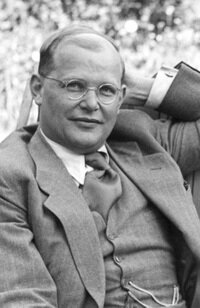All of Life is Repentance
 Tim Keller, pastor of Redeemer Presbyterian Church in NYC says that. I think that he's right.
Tim Keller, pastor of Redeemer Presbyterian Church in NYC says that. I think that he's right.
I've been asked by a couple of people over the past week about repentance - what it is and how you do it. I preached about it on Sunday as I happened to be at that point in the Book of Acts - Acts 3:19-20, which says, "Repent, then, and turn to God, so that your sins may be wiped out, that times of refreshing may come from the Lord, and that he may send the Christ, who has been appointed for you—even Jesus."
Now ultimately, Biblical repentance is about salvation. It is about turning AWAY from your sin and rebellion and turning to God through faith in Jesus Christ. Too many people make repentance into something like, "stop doing bad and start doing good." But, there's no power in that. True repentance means that we turn AWAY from sin and turn TO faith in Jesus.
Repentance means to turn around. A man might say, "I was headed for a cliff, but I repented. I turned around and went the other way and lived."
Repentance is more than just being sorry. It means that we turn around - we forsake our sinful thoughts and activities. It is not a burdensome thing, but rather, it is extremely lifegiving. When we repent, we step into who God has truly made us to be as we place our faith in Jesus.
Who needs to repent? Paul, in Acts 17:30 says that repentance is for everyone: "he (God) commands all people everywhere to repent." We all need to repent because we have all sinned and fall short of God's glory. And, repentance is not just a one time thing. Jesus told the church in Ephesus in Rev. 2:5 that was doing so much right, to "Remember the height from which you have fallen! Repent and do the things you did at first. If you do not repent, I will come to you and remove your lampstand from its place." Turn around from the direction you were going and turn to Christ. Even Christians.
So, I thought that I would list some steps to repentance. Repentance, for the Christian, renews our relationship with God and puts us back on the right path. It involves a looking away from and forsaking past behavior and attitudes and a looking to Christ. It seems that many do not know how to repent. Here are some thoughts:
- Ask God to search your heart (Pslam 139:23-24). We are all pretty subjective. If it is my job to search my heart, I will often rationalize attitudes and actions that God would get rid of if I would just submit to Him. When asking Him to search my heart, it is helpful to read the Bible and focus on passages like Colossians 3. What from that passage do I need to believe and incorporate into my life? What do I need to deal with?
- When God shows you the areas that you need to deal with, confess them to God. Confession is basically agreement with God that we have sinned (1 John 1:9). When we agree with God about our sin, we admit that He is holy and that His character is in tact. We confess our sin and claim His forgiveness. We agree with God about what we have done, give it to Him, and begin to receive His forgiveness. This enables us to walk with Him. Amos 3:3 says, "Do two walk together unless they have agreed to do so?"
- When you confess your sin, forsake it. Turn away from it. "Put off the old" (Eph. 4:22).
- Turn to Christ in faith. It is not enough to just try and stop doing/thinking negative things. We must additionally turn to Christ. He makes us "new in the attitude of our minds" (Eph. 4:23). In this, we receive His unlimited forgiveness and mercy.
- We must put move on. We put on the new self and enter into times of refreshing (Eph. 4:24).
Repentance has gotten a bad rap. It has this image of being this guilt induced experience that makes us feel awful and very ashamed. That is not so! Biblical repentance is liberating and it leads to life! It is a way that God has given us to throw off our sin and turn to Jesus to find true life! It is an avenue to wholeness, because we are only truly whole when we walk with Him. We all need to be in an attitude of repentance all the time. We never become so holy or perfect that we do not need to continually realign ourselves with God's work, will, and purposes taking place around us. Who do we think we are?
I am not talking about feeling bad all the time. But, I am talking about having a basic understanding that I need to realign myself to what God is doing and His holiness and not the other way around. I need to turn around from the direction that I was headed, and by faith, turn to God. It seems that we make repentance too hard on people and they miss an incredible blessing of laying down their will to take up the yoke of Christ. We have made another blessed means of knowing God more deeply into a shameful and legalistic exercise that is only for "really bad sinners."
Well, I am here to confess that I need continual repentance. I need to consistently realign my life with God's will and purposes. I am not ashamed to admit that, because that is a place that I find refreshing, life giving, living water from Jesus. Sometimes it is difficult for us to admit that we need to keep turning our lives over to God, but it is true. And, there is life in recognizing the we still need a Savior each and every day.
May we engage in true heartfelt repentance this week. May we confess our sins and our desperate need for Christ and also the victory that He has for all who believe in Him. Then, by faith, may we receive the incredible grace that God lavishes upon all who call upon Him and move on into the path that God truly wants us to walk - a walk in agreement with Him.
















